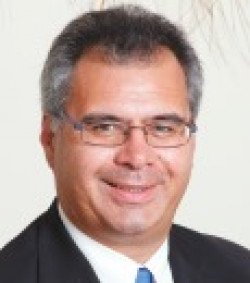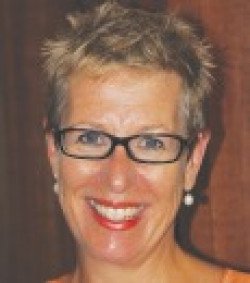Stepping up to Chartered Membership
Boardroom talks to three new Chartered Members who were among the first to qualify by passing the Chartered Member Assessment.
Good governance starts with self improvement
Craig Hattle counts himself lucky that he had governance roles in companies directly affected by the serious political upheaval in Zimbabwe in the last decade. “I look back on those years now and realise that they profoundly affected the way I viewed ‘good governance’ in a broader sense. One could not ask for a better change management training programme!”
An agricultural scientist, Craig initially worked as a field researcher and an agronomist in Zimbabwe followed by working in corporate agriculture in the UK. “My first experience in a governance role came along when I was appointed Managing Director of a cut-flower production and export company in Zimbabwe in 1997. This led to an appointment to the advisory board of an ancillary company that specialised in freight forwarding, logistics and air freight charters.”
Craig, who also holds an MBA, took up his first non-executive board position for Hallmark Flowers in the UK.
I try to add value to the businesses and boards I work with by helping them be the best they can be. The very least they should expect of me is to try to do the same for myself.
After moving to New Zealand in 2011, Craig was invited to join the board of Advantage Business Ltd as a non-executive director in 2013. It was his first governance role outside his area of expertise.
“Working with businesses in a variety of industries has meant I need stronger, broader skills in governance. That’s what motivated me to complete the IoD Company Directors’ Course (CDC) in 2013. It has been the second significant milestone in my own personal professional development journey.
“Following the CDC course through to completing the Chartered Member Assessment (CMA), simply seemed a logical thing to do, and there is no doubt that the process has enriched my own governance competencies – which I guess is what it is meant to achieve.
“I try to add value to the businesses and boards I work with by helping them be the best they can be, so the very least they should expect of me, is to try to do the same for myself – engaging in the path to Chartered Member has been an important step in achieving this goal.”
Inspired by iwi

A senior manager with years of experience in both the corporate and public sector, Eugene Berryman-Kamp has also held multiple governance roles on iwi trusts and boards.
“I enjoy the strategic component of governance – how you can set the strategic direction of an organisation, work out how to get there, then monitor. In management, you have to be very focused on achieving goals so it can be harder to see the bigger picture,” he says.
He was aware that despite years as a director and trustee, he did not hold a formal qualification to recognise his understanding of governance. “I have a degree in management from Waikato University but from a governance perspective, I didn’t have anything to show that would prove my ability and level of knowledge to stakeholders,” he says.
To remedy this he undertook the CDC in 2014 with the entire Ngati Manawa Charitable Trust board.
“I had done governance courses previously but we decided to do the course together as a board so we could ensure that all the directors had a common level of governance understanding,” he says.
Sitting and passing the CMA was his next step.
“I was comfortable with the exam and felt it was pitched at the right level. To me the assignment offered a good representation of what it is actually like to be on a board as it allowed for degrees of interpretation. Often, there is no right or wrong answer,” he says.
“I am a confident person but it was reassuring to pass the assessment. I now know that I had been externally tested under a robust and consistent method and I have met the standard. To know that does help not only with finding new board positions, but it also gives a boost to carrying out current board roles.”
A learning experience

Recently qualified Chartered Member Paula Baker advises anyone planning to do the CMA not to focus solely on whether they pass or fail. She sees the assessment as not just about being able to demonstrate a certain level of skill but also a learning experience in itself.
“Read as much as you can, and listen to as many different people’s opinion on different aspects of governance. The assessment has to be about upskilling and embedding knowledge of best practice principles. These should become second nature to you,” she says.
Since winning Waikato branch’s Aspiring Director Award in 2013, Paula has taken on directorships on the Braemar Charitable Trust, Enrich + Trust and Hospice Waikato. These add to sixteen months as an observer on the board of Perry Metal Protection which she won through the award. She is currently Plunket’s National Advisor-Governance.
“My aspiration is to become a professional director, so knowing that I have a good solid grounding in governance is very important. In applying for different positions on boards it will give me an advantage,” she says.
“I also think it is a really good sector qualification. Having a benchmark to measure skills is the right thing to do in terms of the industry. It puts directors on a par with other occupational groups such as accountants. It says ‘This is formal recognition of a director who has achieved a certain level of skill and experience."
